We all have to adjust to reality, like the lady who entered a Barbados bar having already enjoyed several gin and Dubonnets. On her shoulder was perched a rare parrot and she announced, ‘The first person to guess what this bird is can go to bed with me tonight.’ A voice calls out: ‘A turkey.’ After a quick survey of the other bar stools she replied: ‘That’s near enough.’
Under the leadership of the British Horseracing Authority chief Paul Bittar, racing too has been adjusting to reality, most notably in working for a better relationship with the betting industry on whom it must continue to rely for funding. Bittar has been nearly as loud as the bookies in condemning the Chancellor’s Budget for raising the Machine Games Duty tax on fixed-odds betting terminals in betting shops by another 5 per cent only a year after introducing it at 20 per cent. The Association of British Bookmakers has warned that the shock duty rise has put at risk 3,000 betting offices and 15,000 jobs.
Few people love the bookies. Even those who like a bet tend to regard them, like airports and the smell of fish frying, as a regrettable necessity and the government has been under heavy media pressure to counter problem gambling. But not even the Chancellor dared claim that the new duty will help on that front. I guess he may have hoped that increasing the Machine Games Duty, while giving £40 million of relief to the nation’s bingo parlours, will help to de-toff the government’s image, although the thought of the Camerons and the Osbornes trooping down to the nearest converted cinema for an evening of ‘Number Ten — David’s Den’, ‘Forty-Four — Droopy Drawers’ and ‘Twenty Eight — In a State’ just doesn’t quite convince, does it? The Chancellor simply argued, ‘These machines are highly lucrative and therefore it is right we now raise the duty on them to 25 per cent.’ If being ‘highly lucrative’ is enough, then why not 25 per cent too on prostitution or MPs’ expenses claims?
The problem for racing though, as Paul Bittar and others have warned, is that the government’s attack on bookmakers’ profits could have knock-on effects. If a number of betting shops are closed, then racing could see lower income from sale of media rights, a reduction in prize money and fixture lists, further racecourse closures and even a collapse of the Levy, the basic mechanism for the financing of racing based on bookmakers’ profits.
My own attempt to take something off the bookies at my first Flat meeting this year at Newbury on Dubai Duty Free day failed miserably. The previous day one of Sheikh Hamdan al Maktoum’s horses, wearing the second string’s black cap and ridden by Dane O’Neill, had beaten the choice of his No. 1 jockey Paul Hanagan. Reckoning that lightning would not strike twice, I backed Sheikh Hamdan’s evens favourite Mutakayyef in the first with rather more of my staking money than was wise, only for the performance to be repeated. Once more Hanagan’s mount finished second to O’Neill on the 7–1 Matalleb, trained by John Gosden.
I had intended to back Gosden’s unbeaten Kingman in the big race, the Aon Greenham Stakes, but then another trainer reported a conversation with Richard Hannon’s jockey Richard Hughes, in which Hughesie had asserted that the Hannon-trained Night of Thunder was ‘a machine’ who would assert his superiority at Newbury and become favourite for the 2,000 Guineas. Partly because of that and partly because John Gosden had had four winners at Newbury the previous day and ought to have been running out of luck, I switched my stake, only to see Kingman annihilate Night of Thunder and the rest of a top-quality Greenham field.
In the Frankel colours of Khalid Abdulla, Kingman went smoothly through the gears and produced a burst of speed at the end worthy of the great one to win by four and a half lengths. Afterwards, John Gosden, who is not given to hyperbole, told us that Kingman has the highest cruising speed over seven furlongs of any horse he has ever trained. If he runs, I have little doubt that he will win the 2,000 Guineas. But hold any bets for now: if John Gosden reckons the ground too firm he will not let Kingman participate. As he points out, ‘It is a long season and we can wait.’
The other horse I had come intending to back was the Richard Fahey-trained Gabriel’s Kaka in the big handicap sponsored by Berry Bros and Rudd, but over lunch Richard didn’t sound too hot on him following the horse’s disappointing run in the Lincoln. After Jamie Spencer had brought home Marwan Koukash’s gelding the 8–1 winner, his son Peter said, ‘I know Dad fancied him — we all did.’ Clearly the amiable Malton trainer is not a man to play poker with.
John Gosden ended the day with 12 winners from his last 18 runners. I ended it skint, and with my brief bout of sympathy for bookies fast diminishing.
Got something to add? Join the discussion and comment below.
Get 10 issues for just $10
Subscribe to The Spectator Australia today for the next 10 magazine issues, plus full online access, for just $10.

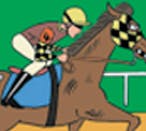
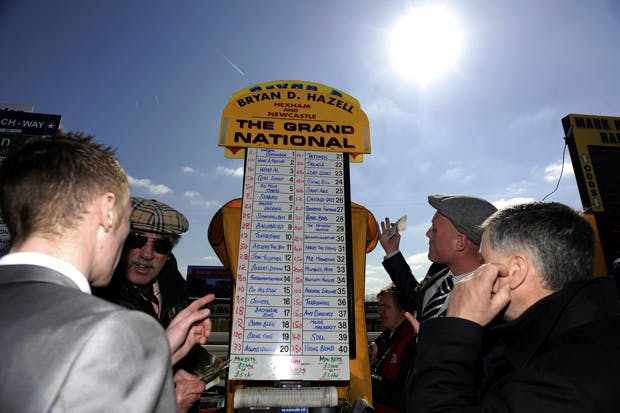
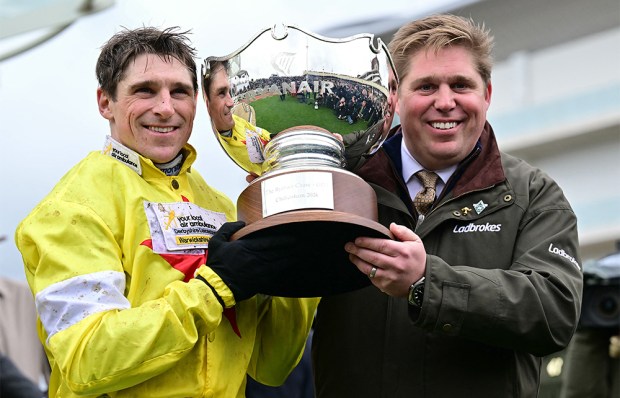
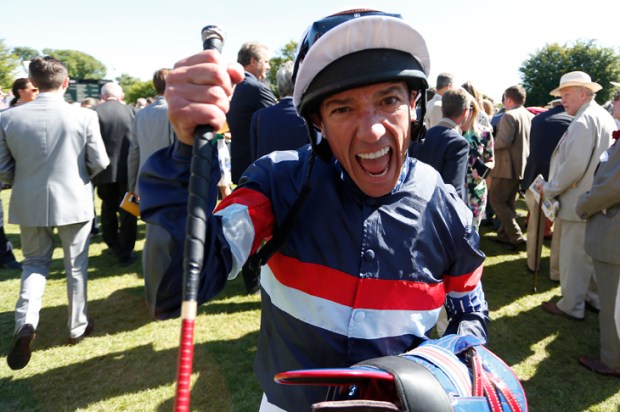
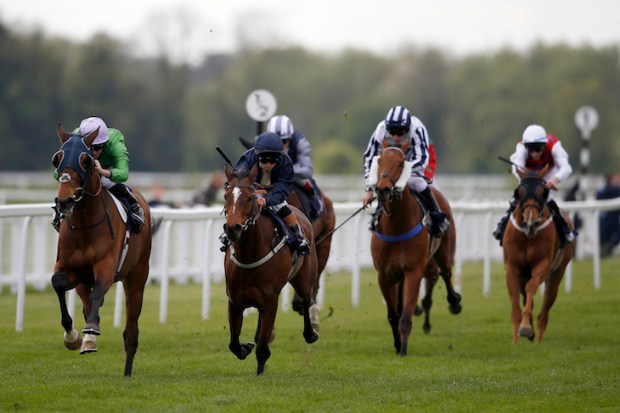
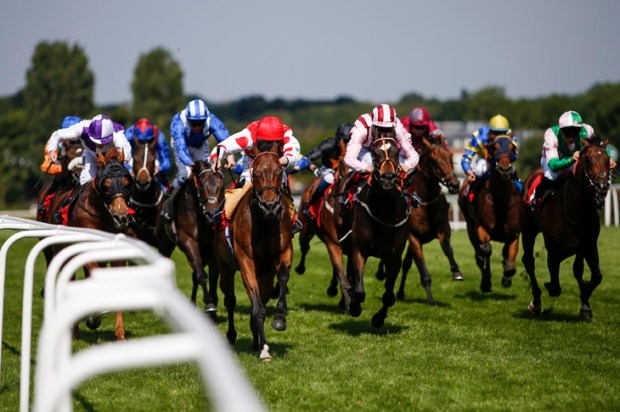
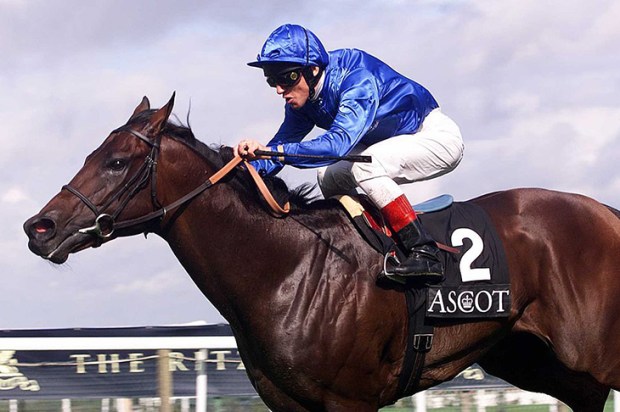
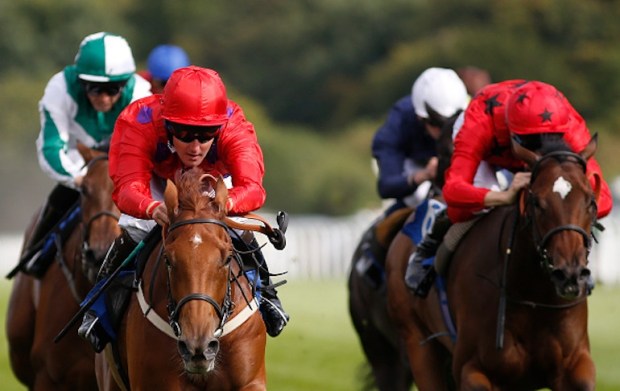






Comments
Don't miss out
Join the conversation with other Spectator Australia readers. Subscribe to leave a comment.
SUBSCRIBEAlready a subscriber? Log in